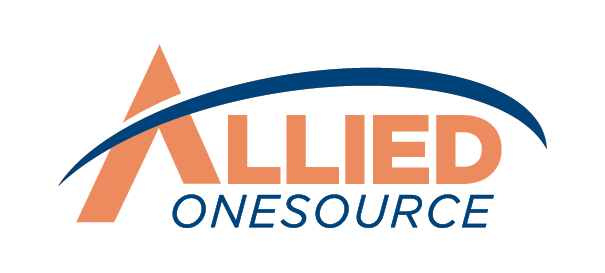9 Effective Ways to Speed Up Your Hiring Process
There are so many risks involved in hiring a new employee. From the long-winded processes to the potential cost of a bad hire, it can consume much of your time and drain precious resources.
But with the right strategies, hiring managers can streamline recruitment and find suitable candidates more efficiently.
Accelerate Your Recruitment Process
If you want to improve your hiring game, check out these nine proven strategies that can help you speed up your hiring process while ensuring quality hires.
1. Partner with a staffing firm.
Staffing or recruitment firms specialize in finding qualified candidates, saving time and effort for hiring managers. They have:
- Extensive databases of qualified candidates.
- Screening and evaluation processes to ensure candidates meet requirements.
- Best ways to attract qualified candidates.
- Expertise in the hiring process and can guide recruiters.
- Temporary staffing in case of an immediate staffing need for a project.
2. Upskilling and reskilling your current workforce.
Did you know that hiring externally can incur 18-20% higher costs than promoting internally?¹ Training new employees for the role can be expensive, and the time spent on new hire orientations and adjusting to the job can impact productivity.
Consider reskilling your employees to help them acquire entirely new skill sets that may be required for different organizational roles. It enables employees to transition into new positions or take on different responsibilities, often in response to changing market trends or technological advancements.
Upskilling, on the other hand, involves providing additional training and development opportunities to enhance an employee's existing skills. It allows employees to acquire new competencies, equipping them with better knowledge and tools to help improve performance.
3. Leverage employee referrals.
Employee referrals provide a direct channel to tap into an existing network of qualified candidates. Since your employees are already familiar with the company's culture and requirements, they can pre-screen and vouch for the skills and qualifications of the referred candidates. This initial screening:
- Helps filter out unqualified or mismatched applicants.
- Reduce the time spent on reviewing resumes and conducting initial interviews.
- Eliminates the need for extensive job postings, saving time and resources.
Although employee referrals can speed up hiring, they shouldn't replace other recruitment methods. A diverse and inclusive workforce is essential, so combining referrals with conventional sourcing strategies is crucial to ensure a wide range of candidates are considered.
4. Remove the bottlenecks that can slow down hiring.
Complex requirements, unclear job descriptions, and ineffective communication with potential candidates are significant causes of hiring drags. To overcome these hurdles:
- Write clear and concise job advertisements.
- Use simple language and avoid jargon or unnecessary requirements.
- Focus on the most critical job responsibilities and qualifications.
- Highlight the skills and qualifications required for the position.
While trying to make the process easier for candidates to determine whether they fit the job perfectly, consider streamlining the decision-making process. Set specific deadlines for resume screening, interviews, and reference checks. Keep everyone accountable to ensure timely progress.
5. Implement structured interviews.
Structured interviews provide a standardized approach to evaluating candidates, ensuring fairness and consistency throughout the hiring process.
Create a set of predetermined questions, focusing on the essential skills and qualifications. This approach eliminates biases and allows for a more objective evaluation of candidates.
6. Engage in active candidate sourcing.
Instead of waiting for applications, you can proactively source candidates through various channels. Social media platforms, professional networking sites, and industry-specific forums are valuable sources for identifying potential candidates.
Engaging with passive candidates who may not be actively seeking new opportunities can uncover hidden talent and speed up the hiring process.
7. Prioritize candidate experience.
Just like your first shopping experience at a mall can influence your decision to return or spread the word to your friends, a candidate's experience is similar. Remember that the candidates you interviewed will likely talk about their experience with your organization, whether good or bad.
According to Retorio, approximately 64 percent of individuals who encounter a negative hiring process would inform their loved ones about their experience. In contrast, around 27 percent would actively discourage others from applying to the same organization.²
A positive experience improves the company brand and increases the likelihood of attracting top professionals in the future. Simplify the application process, provide timely updates, and offer constructive feedback to candidates even if they don't get the job. Treating candidates with respect and professionalism helps to ensure a positive reputation.
8. Foster a positive employer brand.
Similar to providing a positive candidate experience, company brand goes a long way in determining whether candidates will consider working in your organization. Actively promote your company culture, values, and employee benefits through various channels such as social media, career websites, and professional networks.
Encourage current employees to share positive experiences and testimonials. A strong company brand enhances your organization's reputation and makes it more appealing to potential candidates, resulting in a higher number of quality applications.
9. Look beyond the resume.
Traditionally, we were used to judging candidates by what's on the paper. But with the rise of temporary or freelance work opportunities, recruiters need to look at more than one's degree and consider their skills and experiences. Focusing on the candidate's skills not only helps to limit unnecessary hiring processes but also helps to ensure quality employment.
Skills assessments are valuable tools to assess candidates' abilities and determine their suitability for the role. By incorporating practical tasks or assessments related to the job, you can gain valuable insights into candidates' skills and competencies.
These assessments can be conducted online or in person, depending on the nature of the role. Skills assessments help filter out candidates who may have impressive resumes but lack the required skills, saving time in the interview process.
PARTNER WITH ALLIED ONESOURCE TO SPEED UP WITH YOUR HIRING PROCESS
Ready to streamline your recruiting process and find the best candidates without spending so much time? Allied OneSource is here to help.
Our expert hiring team has access to a vast network of pre-screened candidates and specialized industry knowledge to meet your hiring needs efficiently, saving valuable time and resources as our team will handle candidate sourcing, screening, and initial interviews, freeing up your HR department to focus on strategic initiatives.
Don't let hiring be a drag any longer. Contact us today to learn more about how we can help.
REFERENCES
1. "Why External Hires Get Paid More and Perform Worse Than Internal Staff." Knowledge@Wharton, 28 March 2023, http://knowledge.wharton.upenn.edu/article/why-external-hires-get-paid-more-and-perform-worse-than-internal-staff/.
2. "Candidate Experience in the Times of Video Recruiting" Retorio, n.d., Accessed 19 May 2023, https://www.retorio.com/retorio-candidate-experience-overview.










